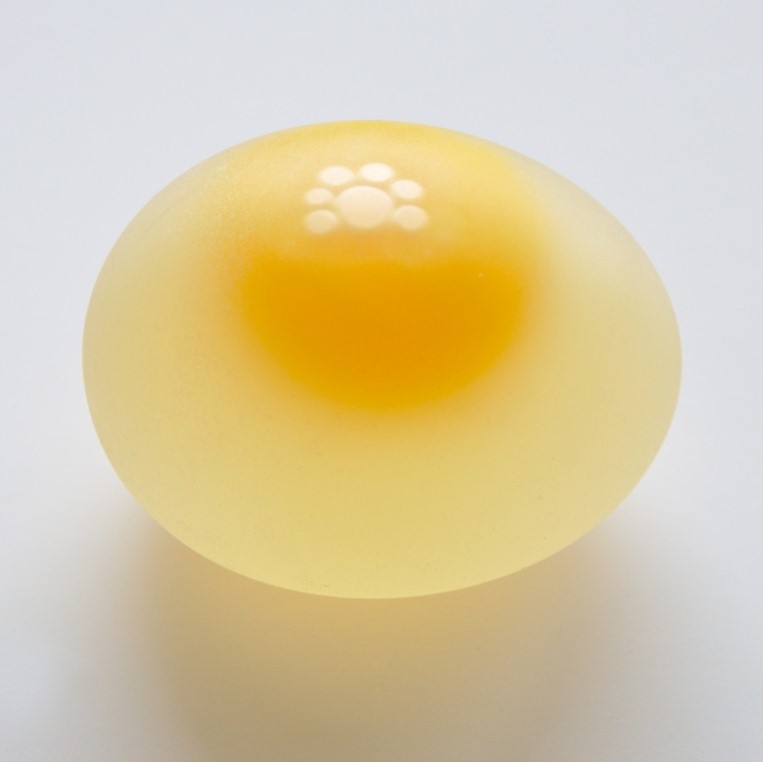
If you leave the egg in the vinegar for about 36 hours eventually all the calcium carbonate will be dissolved by the acetic acid leaving just the soft membrane and yolk behind. Do you think an egg would be able to hatch if its eggshell was a lot weaker and softer.
The added vinegar raises the acidity level of the water enough to cook the eggs better but not enough to make the eggs sour or vinegary in flavor.
What does putting an egg in vinegar do. If you leave the egg in the vinegar for about 36 hours eventually all the calcium carbonate will be dissolved by the acetic acid leaving just the soft membrane and yolk behind. Do you think an egg would be able to hatch if its eggshell was a lot weaker and softer. The egg in vinegar experiment though pretty simple gives your child the foundation knowledge on reactions between acids and bases.
It goes on to change the chemical composition of an egg making it rubbery on being dipped in vinegar for a few days. If you soak this egg shell in vinegar which is about 4 acetic acid you start a chemical reaction that dissolves the calcium carbonate shell. The acetic acid reacts with the calcium carbonate in the egg shell and releases carbon dioxide gas that you see as bubbles on the shell.
How much salt does it take for an egg to float. Does an egg shrink in vinegar. So after soaking in vinegar you should have also noticed that the egg increases a little in size.
This is because the water in the vinegar can enter the egg through the membrane moving from the higher water concentration in vinegar to the lower concentration in the egg. This means that the egg will shrink in size. If we soak an egg in vinegar we will start an acid-base reaction.
The acetic acid from vinegar reacts with calcium carbonate base from an eggshell. Products of that reaction are calcium acetate water and carbon dioxide. You can notice bubbles forming on the eggshell surface thats the sign of newly created carbon dioxide.
Vinegar is an acid. If you soak an egg in vinegar the eggshell will absorb the acid and break down or dissolve. The calcium carbonate will become carbon dioxide gas which will go into the air.
How long do you leave an egg in vinegar to make it bounce. Poached eggs dont end up tasting like vinegar because you only add abut a tablespoon to the whole pot of water. The added vinegar raises the acidity level of the water enough to cook the eggs better but not enough to make the eggs sour or vinegary in flavor.
Adding either salt or vinegar in the water will not prevent the egg from cracking but will congeal the white if it starts to leak out of the shell from a small crack making the cracked egg still pleasing to look at. Place eggs in a pot of cold water. To avoid cracking the eggs place them in the pot with a spoon.
If you soak an egg in vinegar the eggshell will absorb the acid and break down or dissolve. The calcium carbonate will become carbon dioxide gas which will go into the air. What is left is the soft tissue that lined the inside of the eggshell.
What HappenedEggshells are made of calcium carbonate and vinegar contains acetic acid. The acid reacts with the calcium carbonate and makes calcium acetate. One is to make the solution the water more acidicand vinegar which is quite an acidic entity can do just that.
So by adding vinegar we get a double effect of heating combined with increased acidity to help the egg white coagulate and form a solid white. Parisian chef Bertrand Auboyneaus version fries an egg in an ample knob of butter then reduces a couple tablespoons of white wine vinegar in the leftover pan butter and tops the whole thing. To hard boil the perfect egg put your eggs in a pot and fill with cold water until the eggs are covered.
Now add ¼ cup of vinegar and a teaspoon of salt into the water as well. Set your burner to a medium-high heat and boil for 6-10 minutes depending on how done youd like them to be 6 minutes will give you a soft boiled egg where. Place the eggs in a saucepan.
Cover the eggs with lukewarm water. Add in vinegar and pinch salt. Bring to a full boil over medium heat.
Boil for 2 minutes start timing after the water reaches a full boil. Remove from heat cover with a tight lid. Allow the eggs to stand for 11 minutes.
If you soak this egg shell in vinegar which is about 4 acetic acid you start a chemical reaction that dissolves the calcium carbonate shell. The acetic acid reacts with the calcium carbonate in the egg shell and releases carbon dioxide gas that you see as bubbles on the shell. What happens when you put an egg in vinegar for 2 days.
That means easy peel boiled eggs. Add salt and vinegar to the water before cooking. The salt permeates the shell a little bit and the vinegar helps to break down the shells making them easier to peel.
Cool the eggs in ice cold water for ten minutes. Vinegar is acidic. Egg shells are mostly calcium carbonate which is alkaline.
Put them together and they react dissolving some of the egg shell.